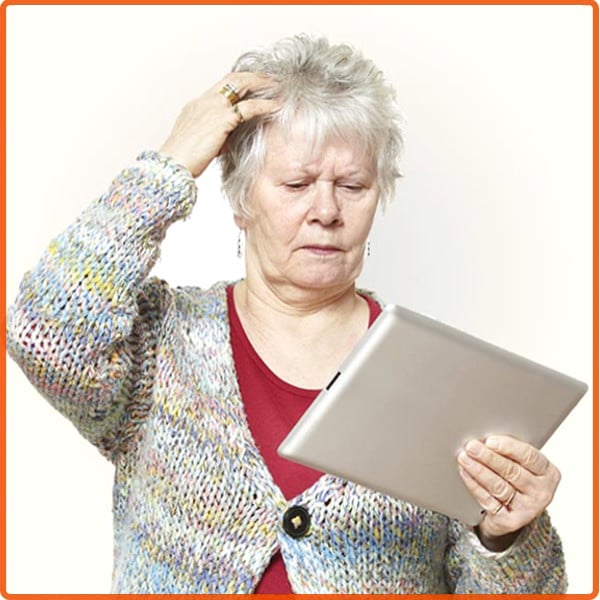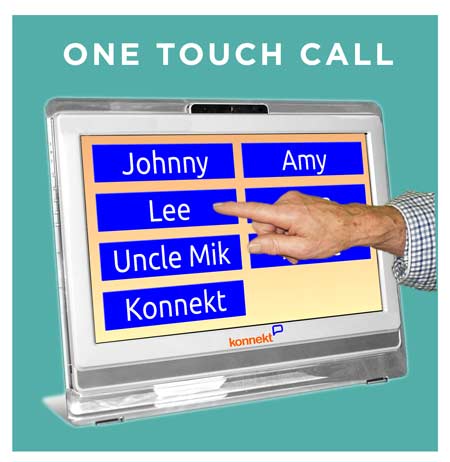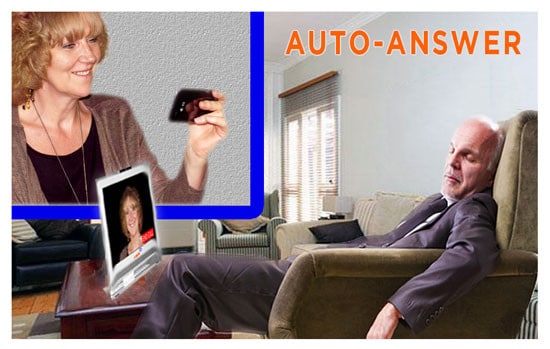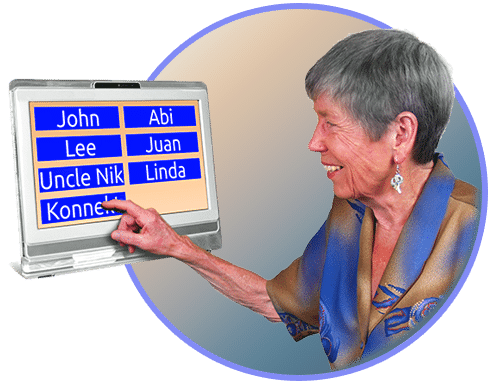Face-to-Face Communication Aids
Face-to-face communication aids provide
- An easy way to communicate with family, friends and carers
- Identify health changes quickly, from visual cues
- In an emergency, check in fast, with 2-way video & sound
When to Recommend a Face-to-Face Communication Aid

Loneliness & social isolation
- Research shows: Lack of face-to-face contact 3 times a week with family & friends doubles depression risk.
- In the study: Verbal-only contact, less frequent visual contact, and contact only with staff/strangers, made no measurable difference.
- Social isolation is associated with reducing functionality, cardiac disease, poor sleep habits and higher morbidity rates.
- A face-to-face communication aid is indicated where there is risk of social isolation or depression, or an expression of loneliness for loved ones.
June’s Videophone reduced her loneliness. She now sees distant family and friends often!

Mental, physical & learning disabilities
- Independence is vital and is linked to self-esteem.
- A disability or dementia can prevent the ability to learn or use Skype on a tablet.
- Difficulty with even a regular phone can become a barrier to verbal communication.
- Online scammers and unwanted callers are a terrifying threat to the vulnerable.
- A face-to-face communication aid is indicated where use of an iPad / tablet, or even a phone, is causing frustration due to dementia, acquired brain injury, a learning impairment, or dexterity / mobility limitations.
Wendy says her Videophone is simpler than a phone. It also cut family phone bills by $600/yr!

Falls and illness
- Studies show: The elderly and disabled are at much greater risk of falls resulting in serious injury.
- Being alone, even for short durations, increases anxiety about health. Carers may panic when their calls are unanswered.
- Anecdotally, 50% of those with an emergency pendant don’t always wear them.
- During an emergency, rapid visual check-in provides comfort, aids decision-making.
- A face-to-face communication aid is indicated where there is risk of fall or illness, an expression of concern by family or carers, or a desire to continue to live independently.
Graham had fallen. Videophone auto-answered his son’s call. Seeing his Dad on the ground, he comforted him while calling for help.

Recognized Winner
Awarded Best Consumer Friendly Product in Care, ITAC Conference
Konnekt Videophone
Recommended by health professionals – click here
The Konnekt Videophone is a face-to-face communication aid and an assistive technology, designed specifically for hearing loss, low vision, physical disability or cognitive impairment.
Services include full customization, and on-going support for additions and changes.
Click to Learn More:
See Videophone in action
Face-to-face communication, made incredibly easy – easier than a regular telephone
View our videos to see how incredibly easy Videophone is, to use.
Read more or speak to your nearest Assistive Technology expert about face-to-face communication aids.





